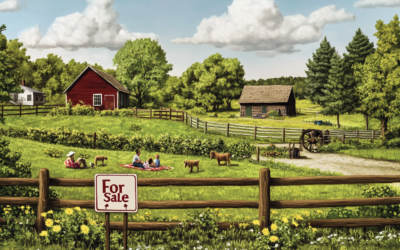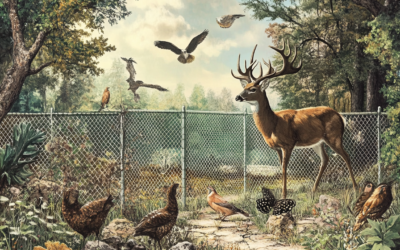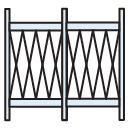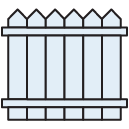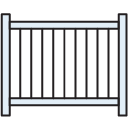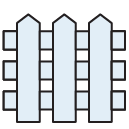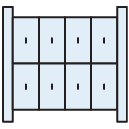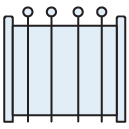Wire fencing is a popular choice for rural properties due to its versatility, affordability, and effectiveness in containing livestock and defining boundaries. However, not all wire fences are created equal. Understanding the different types of wire fencing available, their pros and cons, and their ideal applications can help you make informed decisions for your specific needs. In this article, we’ll explore the most common types of wire fencing used on farms and ranches in South Georgia, North Florida, and SW Alabama.
1. Woven Wire Fencing:
Woven wire fencing, also known as mesh wire fencing, is a versatile and widely used option for livestock containment. It consists of horizontal and vertical wires woven together to form a mesh pattern.
- Pros: Relatively affordable, good visibility, easy to install and repair, suitable for various livestock.
- Cons: Can be less durable than other wire types, may not be suitable for all terrains, smaller openings can pose a risk to some animals.
- Ideal Applications: Containing cattle, sheep, goats, hogs, and other livestock; creating perimeter fences; dividing pastures.
2. Barbed Wire Fencing:
Barbed wire fencing consists of strands of wire with sharp barbs spaced along them. It’s primarily used as a deterrent to prevent animals from pushing or climbing through fences.
- Pros: Effective deterrent for larger livestock, relatively inexpensive, long-lasting.
- Cons: Can cause injuries to animals, not suitable for all livestock (especially horses), requires careful handling during installation and maintenance.
- Ideal Applications: Perimeter fencing for cattle ranches, supplementing other fence types for added security, deterring wildlife.
3. High-Tensile Wire Fencing:
High-tensile wire fencing is made from strong, galvanized steel wire that is tightly stretched between posts. It’s known for its durability, strength, and ability to withstand impact.
- Pros: Highly durable, requires minimal maintenance, can withstand pressure from large animals, cost-effective for large areas.
- Cons: Less visible than other wire types, requires specialized tools for installation, may not be suitable for all livestock.
- Ideal Applications: Perimeter fencing for large pastures and ranches, containing cattle and horses, creating boundary fences in areas with high wind or challenging terrain.
Choosing the Right Wire Fence:
When choosing a wire fence for your rural property, consider the following factors:
- Livestock Type: The type of animals you’re containing will influence the appropriate wire type and mesh size.
- Terrain: Consider the topography of your land and choose a fence that can adapt to the terrain.
- Budget: Balance your fencing needs with your budget.
- Maintenance: Choose a fence that requires minimal maintenance to save time and resources.
The Fence Man: Your Wire Fencing Experts
The Fence Man has extensive experience in designing and installing wire fencing solutions for farms and ranches in South Georgia, North Florida, and SW Alabama. We can help you choose the right wire type, design, and installation method to meet your specific needs and budget. Contact us today for a free consultation and let us help you create a secure and functional fence for your property.

